 Get
Get
Ghanaian Cedis Fast!
- Free home delivery over £750
- with Royal Mail Special Delivery 1pm
- Better rates than the banks
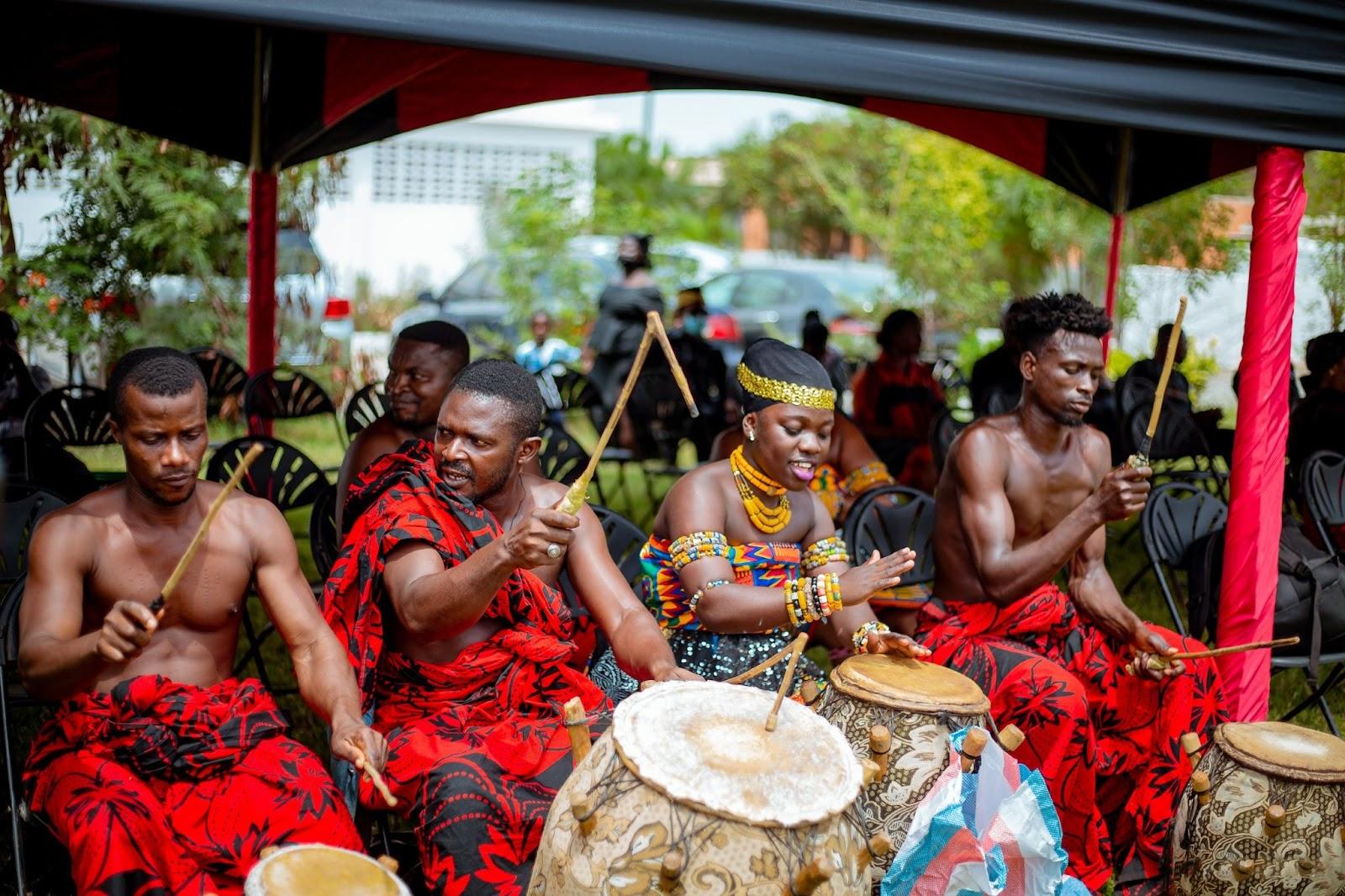
Travelling to Ghana?
Get the best rates for Ghanaian currency online
Prepare for your trip to Ghana and order your Ghanaian cedis at Manor FX now.
Our fantastic Ghanaian cedi exchange rates mean you’ll have more GHS cash to spend.
Get your Ghanaian cedi banknotes securely delivered to your home or office. Or pick them up from the Manor FX bureau near Heathrow.
Manor FX offers fast delivery times and a fuss-free online ordering process for your Ghanaian cedi travel money.

“Easy process from start to finish. Competitive prices and excellent customer support. Would highly recommend and will use again.”
Emma Thompson
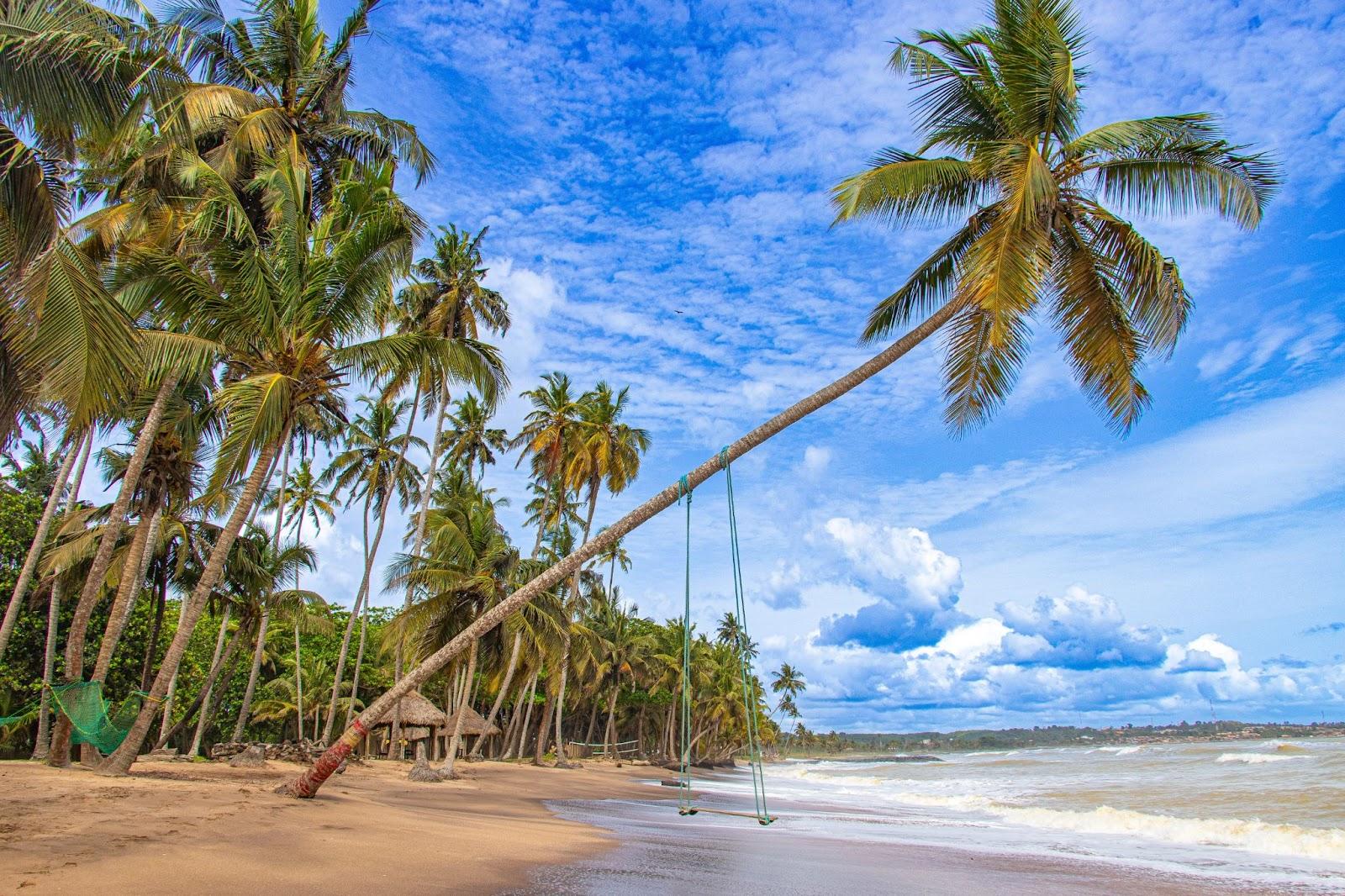
Ghanaian travel money
Head off well-informed to Ghana. Here are some handy facts about the currency of Ghana, Africa, where to change your travel money and foreign currency, plus information about cash and card payments in Ghana.
What is Ghana’s currency called?
Ghana’s currency is the Ghanaian cedi. Its currency code is GHS, and its currency symbol is ₵.
You can buy cedis from specialist currency converters in the UK, like Manor FX.
Why is Ghanaian money called Cedis?
The name cedi comes from the Akan word “sedie,” meaning cowry shell, which was historically used as money in Ghana.
Where can you get Ghanaian cedi?
Ghanaian cedi is a minor currency; it’s hard to find at most high street banks or the Post Office.
You may be able to exchange your pound Sterling to Ghanaian cedi at international airports but beware of the high rates.
Some travel agencies might also offer Ghanaian cedi currency exchange services.
It’s always a good idea to compare Ghana currency exchange rates and fees to find the best deal.
But you can save time, get the best Ghanaian cedi rate, and get next-working-day delivery when you buy from us online or in-store.
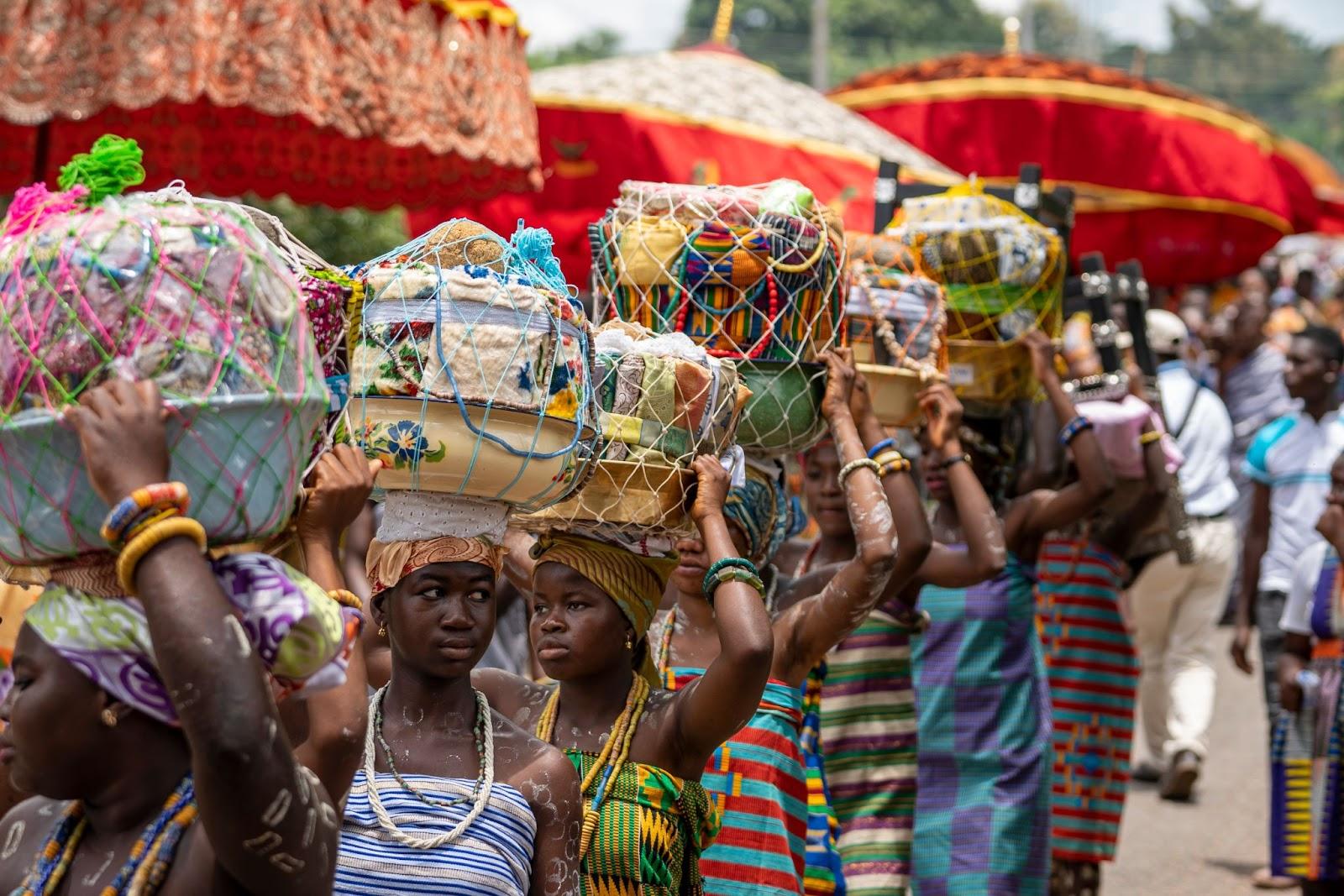
Where can I buy Ghanaian cedi in the UK?
Because Ghanaian cedi is an exotic or minor currency, it can be challenging to find in the UK.
You’ll generally need to go to a specialist currency converter to change GBP to Ghanaian cedi.
Why not save time and a journey to a bureau de change and buy your holiday money online with Manor FX as your now?
Get the best Ghana currency rate and free home delivery for orders over £750.
Should I exchange money before I travel to Ghana?
Yes. It’s a great idea to exchange your pounds to Ghana cedis before your trip to Ghana.
You’ll need Ghanaian cedi when you arrive for transportation, meals, and purchases.
What currency should I bring from the UK to Ghana?
When travelling from the UK to Ghana, you’ll need to bring the Ghanaian cedi (GHS), the local currency.
Bringing some British pounds (GBP) with you is also a good idea. This will make things super convenient and ensure you’re all set to enjoy your time in Ghana without any currency hiccups.
On your return, We’ll help you convert leftover Ghanaian cedi to GBP.
Buy your cedi now

Can I use my bank card in Ghana?
Yes. You can use your bank card in Ghana’s capital, Accra, and other cities, such as Kumasi and Takoradi. Especially in the commercial centre, international hotels and large shopping malls.
It’s a convenient way to pay for larger expenses like accommodations, restaurant meals, and shopping. It’s worth noting that bills are subject to card transaction fees of up to 3%
Smaller vendors and shops in more remote areas rarely accept card payments, and limited internet access also hinders card transactions. For these reasons, most Ghanaians still pay with Ghanaian cedi (GHS).
Friendly tip: before you head off on your adventure, it’s a good idea to inform your bank about your travel plans.
Should I bring cash to Ghana?
Yes, Convert GBP to Ghana cedis to bring to Ghana, especially if you plan to travel around and visit smaller or more remote places where card payments might not be common.
Cash is Ghana’s most popular payment method, followed by mobile payments with local apps such as TXTnpay.
Have leftover travel money? Convert Ghanaian cedis to pounds Sterling with Manor FX, your trusted currency converter.
How much cash should I take to Ghana?
You should take enough Ghanaian cedi in cash to spend between £35 and £50 (500 and 715 GHS) daily on food, transport, and activities.
Additionally, having an emergency stash of a couple of hundred pounds in GBP as a backup is always a wise move.
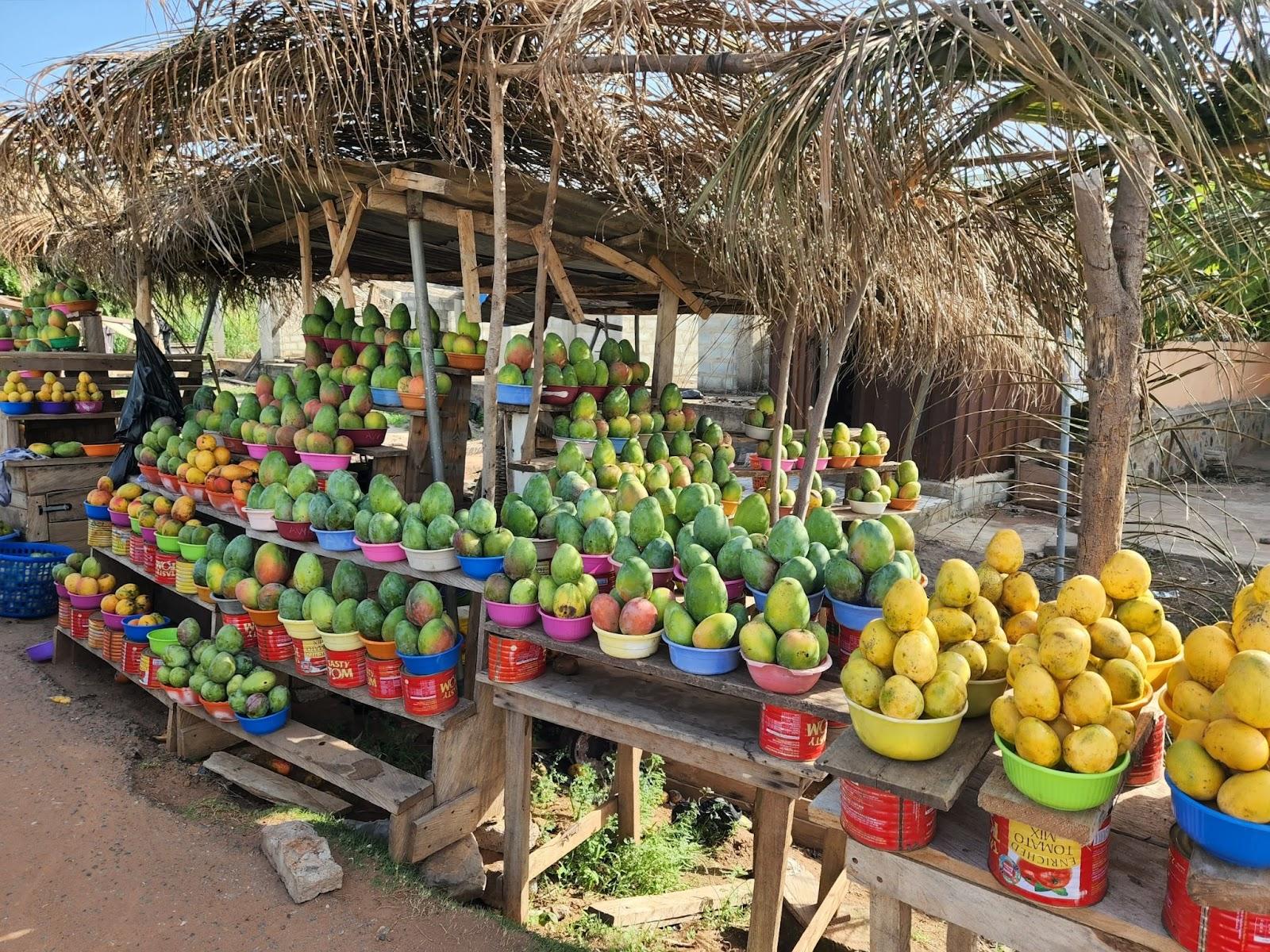
How can I avoid ATM fees in Ghana?
To avoid ATM fees in Ghana, here are a few friendly tips:
- Check your bank’s partners: Before you travel, see if your bank has any partner banks in Ghana. Using these partner ATMs might help you avoid extra fees. Some banks offer fee-free withdrawals.
- Withdraw more significant amounts: Instead of taking out small amounts of cash frequently, take out larger amounts less often. This way, you’ll reduce the frequency of ATM visits and the associated fees.
- Choose your ATMs wisely: Opt for ATMs located within bank branches. They often have lower fees compared to standalone ATMs found on the streets.
How does tipping work in Ghana?
Tipping in Ghana is generally appreciated and an excellent way to show gratitude for good service. Here’s a rundown of how tipping works:
- Restaurants and cafes: When eating out in upscale places in Ghana, leave a tip of 10% to 20%. Tipping is not common in regular eateries and bars.
- Hotels: Tipping hotel staff, such as bellhops, housekeeping, and concierge, is thoughtful. Small amounts, say 5-10 Ghanaian cedis, can go a long way in showing appreciation.
- Taxis and drivers: When using taxis, round up the fare or give a little extra as a tip. If you’re using a driver for a day trip, a slightly larger tip is a nice way to say thanks.
- Tour guides and local guides: If you’re taking tours, tipping your guides is a great way to acknowledge their hard work. Around 10-20 Ghanaian cedis, depending on the length and complexity of the tour, is a thoughtful amount.
How much money can you travel with to Ghana?
There isn’t an upper limit on the amount of money you can travel with to Ghana.
However, you must declare if you’re carrying more than $10,000 (or equivalent) in cash.
Are euros accepted in Ghana?
While some places in Ghana might accept euros, the official currency in Ghana is the Ghanaian cedi (GHS).

Buy your cedi now
Ghana cedi currency
Banknotes in Ghana
The official currency of Ghana is the Ghanaian cedi GHS. The current Ghana cedi notes were introduced in 2007.
Ghanaian banknotes from before 2007 were replaced. A redenomination occurred, and four zeros were dropped: 10,000 cedis from before 2007 were replaced by a new 1 cedi banknote.
The current Ghanaian cedi banknotes in circulation are 1 cedi, 2 cedis, 5 cedis, 10 cedis, 20 cedis and 50 cedis.
Each note from 5 cedis upwards honours the Big Six, key figures in Ghana’s struggle for independence, with their portraits on the front.
Dr Kwame Nkrumah, Ghana’s first president, is celebrated alongside other national heroes.
These figures played key roles in the country’s independence from the Gold Coast era to the Republic of Ghana.
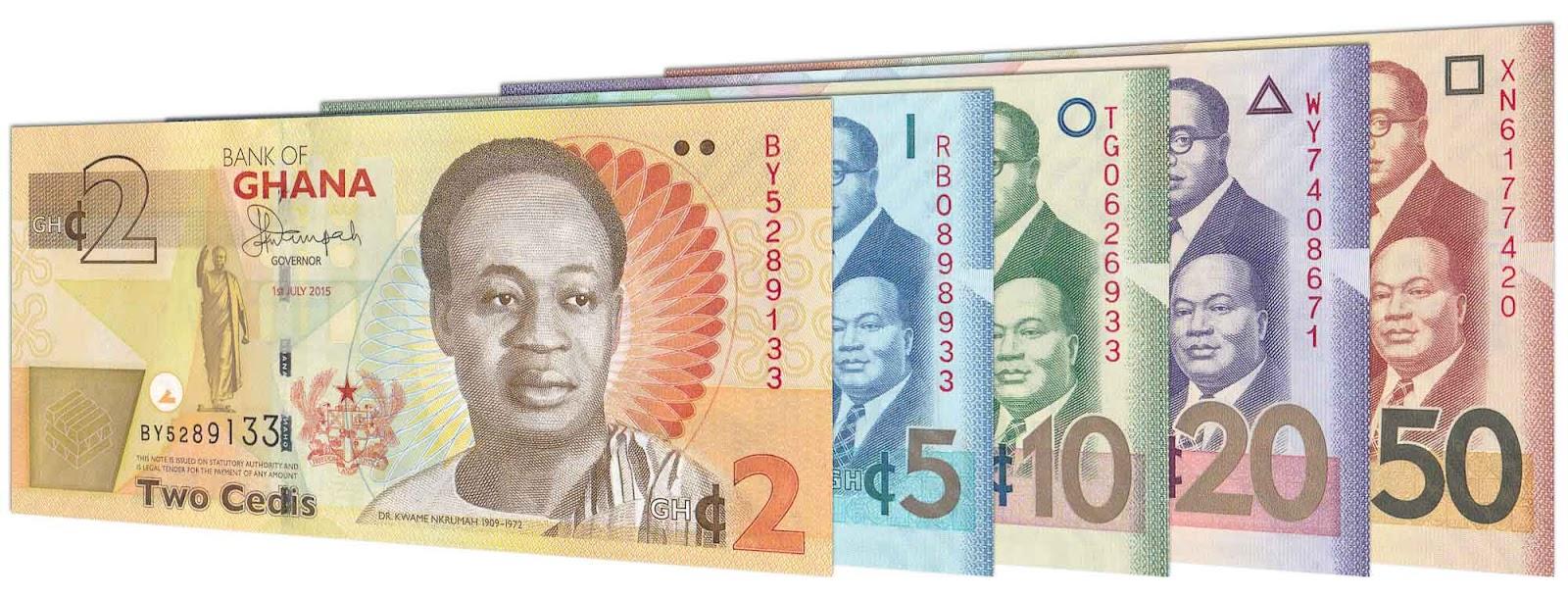
Coins in Ghana
As part of the official currency system, pesewa coins in Ghana range from 1 pesewa (0.01 GHS) to 1 cedi GHS.
These coins complement the larger banknotes, supporting everyday transactions with smaller denominations.
Each pesewa coin is rich with meaning, often featuring national emblems, iconic landmarks, and cultural motifs.
They reflect the country’s history, identity, and aspirations, offering a tactile link to Ghana’s story of independence and progress in West Africa.
For many Ghanaians, these coins are more than just money—they symbolise national pride and economic resilience.
Whether you’re holding a 10 pesewa piece or a 1 Ghana cedi coin, each one carries its own value and heritage.

Ghana’s currency import and export regulations
Travellers can take currency into Ghana up to a maximum of USD 10,000 per person. Passengers must declare currency upon arrival. Find out more about how much cash you can travel with here.
Ordering Ghanaian cedis online
Order your Ghanaian cedis online and get them delivered fast and securely to your home or office with Royal Mail Special Delivery Guaranteed®.
If you prefer, you can click and collect and pick up your travel money from our bureau de change near Heathrow. Click here to buy Ghanaian cedis online.
Convert Ghana cedi to GBP
If you have Ghanaian cedis to sell, follow this link to exchange Ghana cedis to pounds. Just click on ‘sell currency’, then select ‘GHS Ghanaian cedi’.
We’ll pay great rates for your leftover Ghana cedi to pound Sterling conversion.
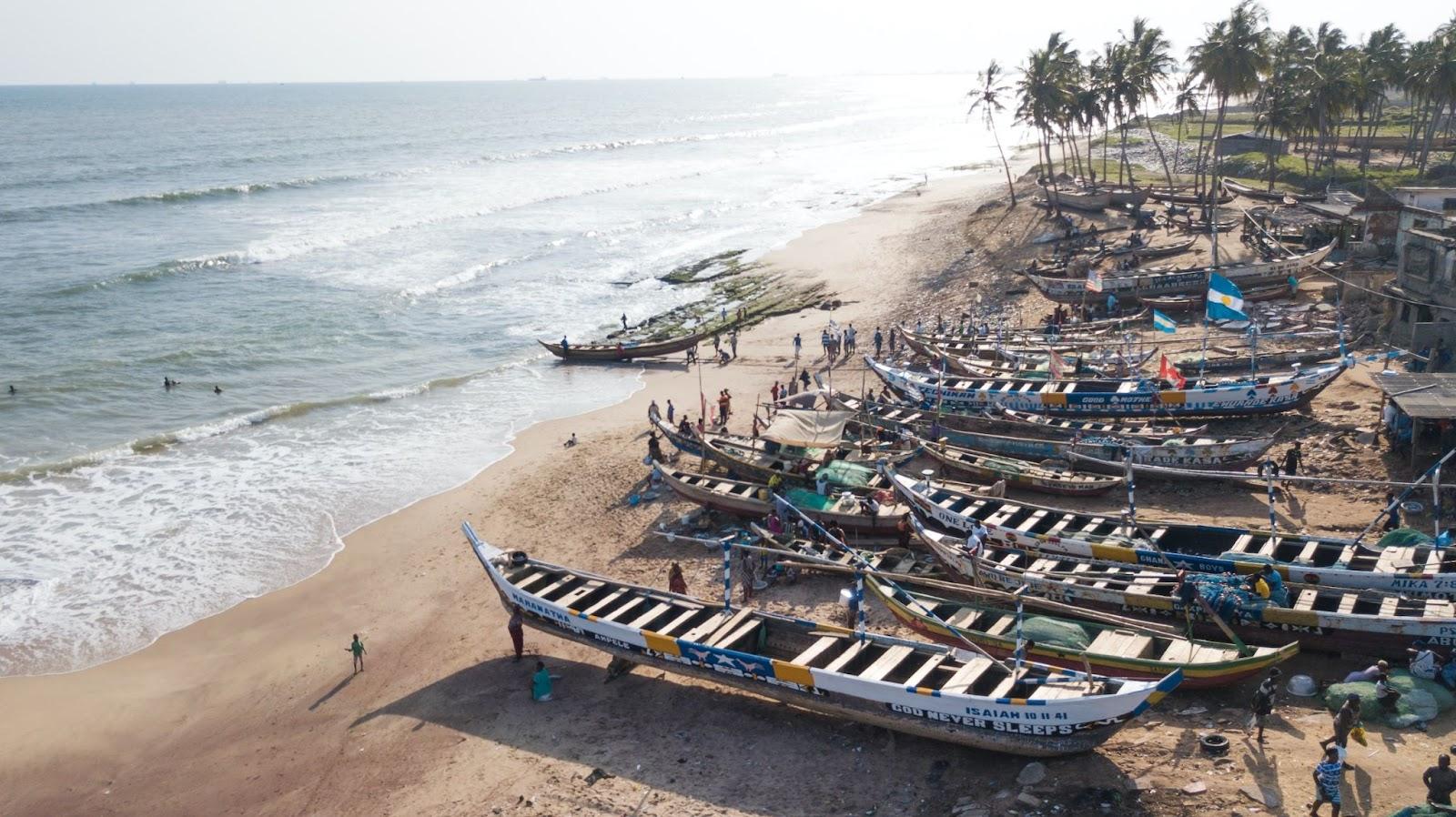
FAQs
Do you need a visa to go to Ghana?
Yes, you’ll likely need a visa to visit Ghana. Visa requirements depend on your nationality, the purpose of your visit, and how long you intend to stay.
Check-in with the Ghanaian embassy or consulate in your home country or visit their official website. They’ll provide all the details you need to know about obtaining the correct visa for your trip.
How long can you stay in Ghana as a tourist?
If you’re planning to visit Ghana as a tourist, the duration of your stay can vary. Typically, you can get tourist visas for stays of up to 30, 60, or 90 days.
The exact time you can stay depends on your visa and travel plans.
What vaccinations do I need to enter Ghana?
There are no strict vaccination requirements for entry. But it’s important to stay protected.
Standard vaccinations for travellers to Ghana include yellow fever, typhoid, hepatitis A, malaria, and meningitis, as well as routine vaccinations like measles, mumps, and rubella.
What’s the most popular Ghanaian cedi exchange rate?
The most popular Ghanaian cedi exchange rate is GHS to USD (Ghanaian cedi to US dollar).
Is the Ghanaian cedi affected by high inflation?
Like many currencies, the currency of Ghana has experienced periods of high inflation, which can influence exchange rates and prices.
How has the Ghanaian cedi GHS supported economic growth?
The Ghanaian cedi (currency code GHS) is the official currency of Ghana and a vital part of Ghana’s economy. It supports trade, investment, and ongoing economic growth across the country.

Feel the Trustpilot love

Great competitive rates & friendly & helpful staff. Easy to order online & collect in person or delivery.

Great, fast and reliable service would certainly use again for my travel needs, as the rates are the best around!

This amazing company have gone above and beyond in getting a large amount of a rare currency across the pond to Ireland.

Great rates and really responsive, friendly customer support, will definitely be using Manor FX again.

Manor FX gave me a better rate than my bank with great customer service, I highly recommend them.

Family run business that’s always super helpful. Manor FX’s rates are always really good as well!
 Get
Get
Ghanaian Cedis Fast!
- Free home delivery over £750
- with Royal Mail Special Delivery 1pm
- Better rates than the banks